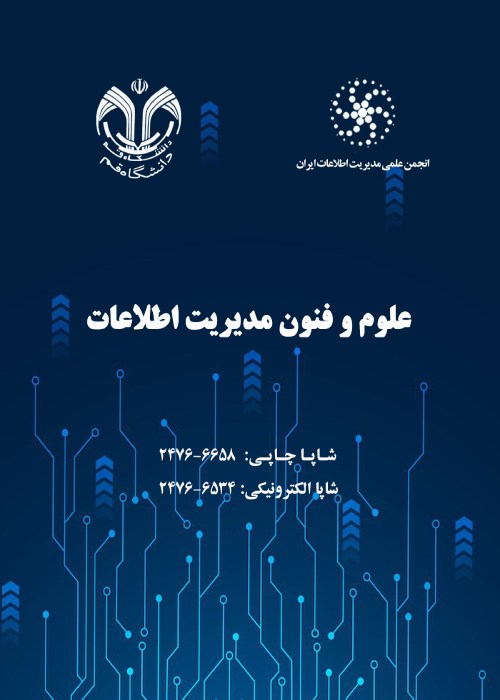Formulating a Cloud-Based Knowledge-Sharing Behavior Pattern (Case Study: The FacultyMembers of Islamic Azad University (IAU))
The present research aims to examine and offer a model of a cloud-based knowledge-sharing process among the faculty members of Islamic Azad University (IAU).
This research is applied in terms of purpose, and in terms of type of research, it is mixed exploratory, and in terms of research method, it is research-based on grounded theory. For the purpose of the research, all 2800 faculty members of Islamic Azad University (IAU) in the country were studied. To determine the sample size (397 people), a multi-stage sampling method and Cochran's sample size formula were used. In this research, structured interviews and electronic questionnaires were used as research tools in two qualitative and qualitative stages. In order to achieve the objectives of the research, the interview with the experts continued until the theoretical adequacy. The pattern of knowledge-sharing behavior was extracted from the data of the qualitative phase of the research. Also, the research employed structural equations (Partial Least Square Model) to analyze the research data, using smartPLS software.
The research findings indicated that there were six effective components connected with the exploratory pattern of knowledge-sharing behavior, which are given below in order of priority: 1. Principal Component; the pivotal component with the factor of organizational maturity level, 2. Causal Conditions; including the management and organizational factors, 3. Strategies; including the factors affecting the development of job security and the improvement of the level of trust across organizations and organizational communication network, 4. Background Conditions; including organizational culture and technological infrastructures 5. Intervening Conditions, including the enhancement of workforce skills, and 6. Consequences. These include the factors affecting the efficiency of human resources and the development of occupational engagement.Similarly, the research results indicated that both the management factor and the organizational factors, as the dual elements of the component causal conditions, influenced the organizational maturity development process. This is because the T-statistic value given the effectiveness of the management factors and the path coefficient equaled 3.666 and 0.21, respectively, which is indicative of the direct positive effects of the management factors on organizational maturity. The organizational factors affected the maturity process directly and positively since the T-statistic value was 6.334 going beyond the absolute value of 1.96, and the path coefficient was 0.327.
Organizations can pave the way for the development of organizational maturity if they are in favorable conditions in terms of support from managers and the coordination between cloud computing and knowledge-sharing systems. The implementation of such systems across organizations will result in improved performance of the faculty members and an increased competitive advantage.
- حق عضویت دریافتی صرف حمایت از نشریات عضو و نگهداری، تکمیل و توسعه مگیران میشود.
- پرداخت حق اشتراک و دانلود مقالات اجازه بازنشر آن در سایر رسانههای چاپی و دیجیتال را به کاربر نمیدهد.




